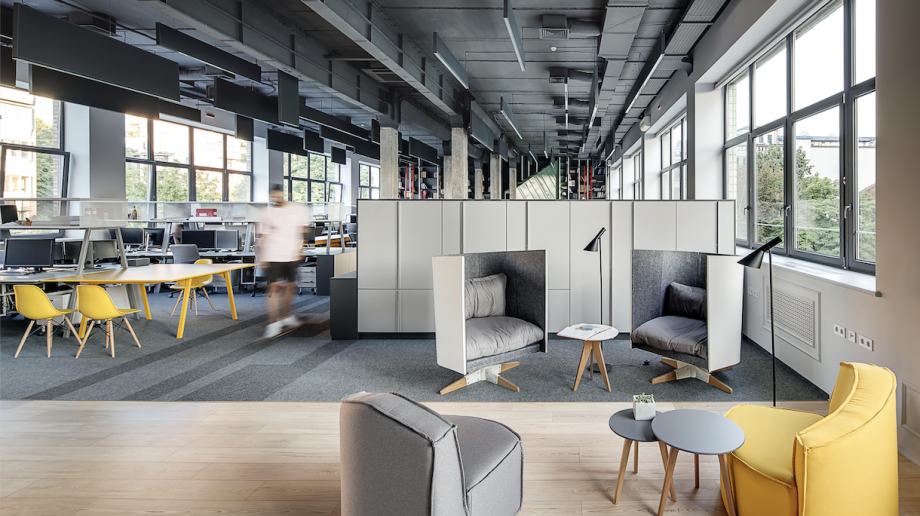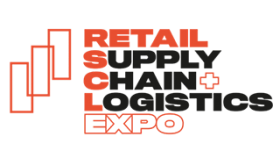Safeguarding Commercial Fire and Electrical Safety Across South England.

The office isn’t dead... It’s just changing
While remote working offers flexibility, employees still want and need meaningful connections and spaces that support them to do their job to the best of their ability, finds Laura Wright, head of workplace solutions at Abri.
It won’t be news to anyone connected to facilities management and workplace solutions that we all need to work harder to fulfil the changing needs of businesses and employees. Gone are the days where you would rely on having a site that would be fully occupied from 9am until 5pm, Monday to Friday. The pandemic really forced many businesses’ hands in this area, it meant that office based employees could work from home and it showed us that other possibilities were available. And truthfully, even before the pandemic began, most sites I have worked at over the last ten years had been under-utilised. Sometimes significantly.
The new normal?
Here at Abri, one of the south’s largest housing associations, our occupancy of desks was around the 40 per cent maximum mark just before March 2020. Interestingly, the anecdotal evidence from our 1500 colleagues was that the offices were full to bursting. And yes, they were full to bursting, with desks placed against each other and a huge amount of paperwork.
We’ve heard more and more buzz words around this “new normal” and “great reset”, often implying that the office is no longer the place to be. Whilst it’s true that many employees have embraced the benefits of remote working and the flexibility of how and where they work, the idea that offices aren’t needed and that everything can happen remotely is unrealistic for many businesses. It certainly is for us at Abri. Not only do we have a significant number of front-line colleagues, such as Trades who need to be in customers’ homes to fix them, we also have teams that have benefited from coming in to the offices alongside remote working.
Development opportunities
These are particular benefits to specific teams or projects, such as our customer experience call centres where many entry level colleagues have been able to receive support and learn from one another. Our development teams have also been able to visit the offices to discuss new development opportunities, which often involves large physical plans, and colleagues working on our single systems project have found that being together face to face has improved their ability to plan ahead.
That’s not to say that much more can and should be done remotely. Remote working has many benefits; it is better for equity and inclusion as it allows employees who have struggled with the traditional office-centric outlook to bring their knowledge and experience into businesses, and it opens the door for a better balance between work and home life. A more digital first approach should see new asynchronous working practices increasing, rather than trying to recreate the old office set up but just online. Please, someone save me from back-to-back Teams calls.
The office isn’t dead - it’s just changed
So, my stake in the ground is the office isn’t dead, it’s changed. Since we realised our offices were underutilised and following significant growth of the business, we began talking to colleagues constantly about how they were working, how they wanted to work, what they wanted from the offices, what they enjoyed and what they didn’t. Some of this was already happening, but it became much more focussed during the initial stages of the pandemic and continues now. And what do our colleagues want, surely the classic things when you ask people the magic wand question about the offices: free food, gyms on site, somewhere to play pool and nap pods? Here, I should note that we’re a non-profit social housing provider with strong values and a culture that places value in the community and everything we do is customer-centred. But no, our colleagues don’t want a pool table, they want meaningful connections and spaces that support them to do their job to the best of their ability. We have found that more and more people want to be together, collaborating and socialising. They want exposure to other roles and teams, and Abri wants that too. We want great talent retention and progression into different areas so that Abri can continue to be a great place to work. We want to learn from one another, and our leaders to be visible. But we also want more as many of the benefits that we can get from more remote working too.
I can’t speak for every business, the balance and tension between all these points will be specific to the needs of each organisation, but there are things we’ve learnt.
Align changes to the overall strategy
Look to the strategy: it seems obvious, but make sure you are always aligning changes to the overall business strategy. Get comfortable questioning whether decisions being made help the goals of your business, and let colleagues know that you’ve considered the overall strategy. Make sure you understand key departmental strategies alongside this. Without understanding our trade and housing functional strategies, we would be completely out of step with their needs.
Get a great sponsor: make sure you have a senior sponsor who understands that you need to feed into the Executive Board or C- Suite. Your business goals, like ours, may not be facilities and workplace focussed so you must build trust and demonstrate value for the attention placed in the department.
Talk to your colleagues: everyone and anyone who will speak to you. Directors to cleaners, HR to Health and Safety, plumbers to developers. This is something Facilities Managers are used to, but never underestimate great relationships throughout the business as people will help support any changes and will come to you with issues before they become problematic. Don’t be afraid to explain the balance of needs across the business and empower your team to do the same.
Data is key
Make sure you have data: there’s probably a lot you already have, or that is available in other parts of the business, so make sure it’s collated in a way that’s useable for you. Think about utilisation studies, operational costs, departmental headcount, desks bookings, employee engagement data, business and employee geography.
Use technology already in place: before going out to the market, think about what you already have and work closely with IT to make sure it’s user friendly. Our in-house IT team were able to build a desk booking and parking app that was already compatible with all our systems and didn’t cost us anything.
Changes that matter
Make changes that matter to people: if something won’t have a high impact, don’t do it. Why order free fruit for everyone when you have horrible toilets that get regular complaints?
Facilities management has always loved a big bang project. Send everyone out of the buildings, implement a massive change and bring everyone back for an impressive experience. But sometimes you can’t do that. Especially for businesses with a need to focus on value for money, there is a benefit to making small iterative changes that substantively support your colleagues. It might not be as good as a show, but your colleagues working experience will still be improved. Make changes that matter for your business and your colleagues, not for a technology giant with an incredible budget that you can only dream of. There is value in improving workplaces for all businesses, not just those who can afford to make grand changes and then spend the money again if an experiment doesn’t work out the way they expected.
Laura Wright is head of workplace solutions at Abri, one of the south east’s largest housing associations responsible for 35,000 homes and 80,000 residents.
Company Focus
Event Diary
An essential date in the calendar for those responsible for homeland and global security; International Security Expo returns to Olympia in London on 30 September & 1 October 2025.
Every sport, from grassroots football to world-class tournaments, depends on one constant: high-quality playing surfaces and well-maintained green spaces.
Tickets: Free registration available at www.retailscl.com
The Retail Supply Chain & Logistics Expo is the UK’s leading event for retail supply chain and logistics professionals, showcasing the latest innovations in fulfilment, 3PL, AI-driven automation, and warehouse technology.
Supplier Profiles
Bauder Accepts Keys to its New UK Distribution Centre at Gateway 14
Bauder marked a major milestone in its UK expansion with the official handover of a brand
Words of World: Bridging language barriers with excellence
At Words of World, we specialise in professional translation and interpreting, d
Latest Features
The British Institute of Cleaning Science (BICSc) and the Cleaning & Support Services Association (CSSA) have successfully completed a groundbreaking project aimed at exploring the future of cleaning. This collaboration marks a significant milestone in the cleaning industry, reflecting a shared commitment to embracing innovation with confidence.
The Crown Commercial Service’s (CCS) new framework on Language Services (RM6302), dealing with translation, transcription and interpreting, is live, running from 7th May 2025 to 6th May 2028.










